#Tom Rand
Text
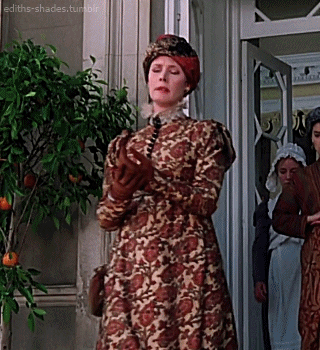
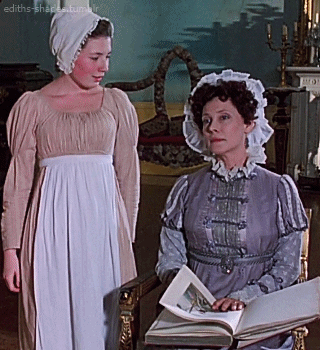

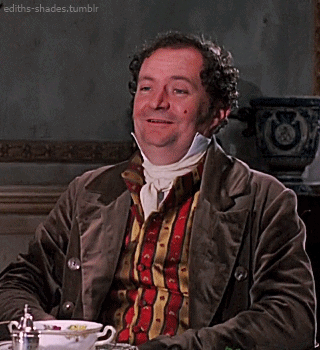


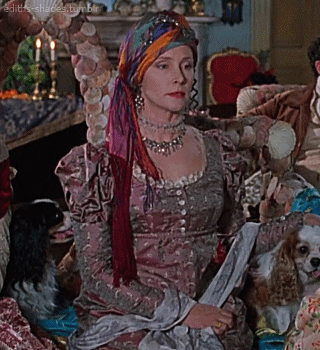
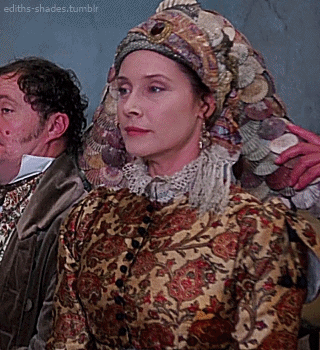

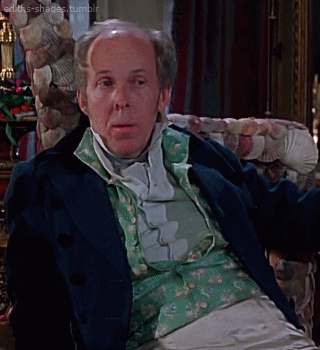

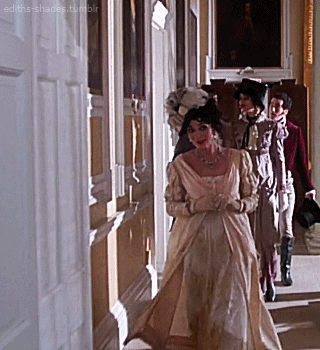


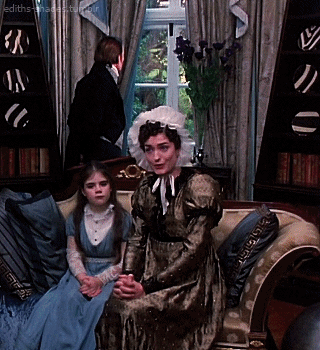
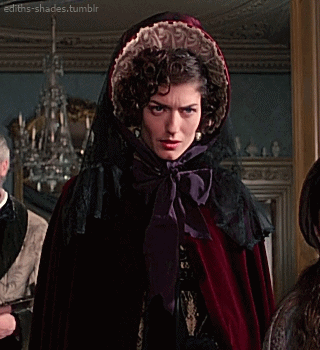
Costumes in PRINCESS CARABOO (1994) [2/2]
Costume design by Tom Rand
requested by anonymous
#Princess Caraboo#Wendy Hughes#Jim Broadbent#Anna Chancellor#Jacqueline Pearce#Jerry Hall#1990s#period costumes#90s movies#my gifs#userthing#cinemapix#cinematv#filmtvcentral#costumesource#periodedit#tvfilmspot#filmedit#perioddramaedit#Tom Rand#I thought I had queued this but apparently not
50 notes
·
View notes
Text
WoT Meta: Prophecies, Fated Lovers, and Robert Jordan's knack for finding the nuance underneath the myth
One complaint I've never understood about the way Jordan writes romances is the persistent claim that he over uses the 'prophesied love' trope.
In part for me, I think it's a little bit folks not seeing the forest for the trees. WoT is fundamentally about the relationship between myth and reality: the place where the fallen angel meets the disgruntled academic, the bitter accountant, and the man who never got over being too short. It's a story where the messiah is real and dealing with chronic pain and PTSD from his stigmata. Where a legendary High Queen has to deal with both marching armies to the apocalypse, and the irritating banal realities of being pregnant at the same time. Of course Jordan digs into the idea of prophesied love- it's a huge theme in folklore and mythologies the world over. Jordan wants to dig into what it really means for there to be a person out there that you are destined to be with: that is a match for you, decreed so by the universe itself....and that you get absolutely no agency and choice in choosing. If anything Tumblr, which adores the 'red string of fate'/'soulmark'/'soulmates share pain'/'world is black until you look into your soulmates eyes' (to name a few of the more prevalent ones- some of which Tumblr practically invented), should be super on board for the parade of fated lovers to be found in WoT. It's nothing short of baffling to me that their not more fondly viewed.
And I think that is tied to the follow up complaint: the criticism that Jordan 'uses prophecy love as a replacement for a romance arc'. But that is something that is just. Patently untrue.
Cause the thing is that is how soulmates are often used...in the majority of soulmate au fanfics you find here and on AO3- an excuse to get the really hard part (two characters realizing they are right for each other and love each other, then having the communication skills to articulate that so they can start a relationship) out of the way, so the author can focus on the fluff or angst or other part they and the audience want to get to. And that's fine! But that's not at all what Jordan does. Just like he does with the Prophecies of the Dragon, or Elaida's fortellings, or even just most of Min's viewings- Jordan takes the idea of the prophecy soulmate, this person decreed by some higher power to be Perfect For You and being right about it, and digs deeper, shining it in different lights and attacking it from different angles. Jordan gives the concept of the soulmate teeth, explores the spines and the sharp points of it: is it real love if it's fated and not your choice? Can you trust your own feelings, or are they fate's design working against you as surely as Aphrodite worked against Helen or Eros against Apollo? What is it like, to see someone one day, and know, beyond a shadow of a doubt that you would love this stranger? This question mark? This wildcard?
Rand's relationships with Min and Aviendha, as well as Mat and Tuon's courtship are great examples of this conundrum. Min and Aviendha have completely opposite reactions to the same information that demonstrates their unique strengths and weaknesses as characters and people, while Tuon and Mat's courtship is all about two people who know they will marry trying to figure out what that means, without ever confronting the reality of those prophecies directly.
Min, as befits a Seer who has learned time and time again that her viewings can not be changed, has resigned herself in an almost fatalistic fashion to all of them, and to loving Rand no less. Min knows that she, and two others, will love him, and she accepts its inevitability the same way she accepts Colavere's death, or Logain's glory, or the shattering of the White Tower. What is, is, and there is no sense or point in struggling against it. What concerns her a great deal more is what she doesn't know- she doesn't know if Rand will love her in return, she doesn't know the identity of the other two women who will love him, and she doesn't know if he will fall in love with one or both of the others but not her. Add to that Min's own insecurities about how she stands out and doesn't fit what her society deems 'proper', between her crossdressing, and her offputting manners, and it makes perfect sense that she's worried about making Rand love her. She doesn't mind sharing him- she hates the idea of being in love with a man who doesn't love her in return, of being stuck like 'Elmindreda' of the stories, sighing and pining endlessly for a man instead of being able to act, to take control of her own fate.
So she takes control: she learns to flirt from Leane, works hard at making herself desirable, and also indispensable: with her visions, her advice, even just her emotional support to Rand when he otherwise has no one else. The irony is that whenever Rand thinks of Min prior to her return to his side in LoC, it's about how much he liked her earthy honesty and lack of wiles: how she was earnest and made him feel at ease, and didn't 'spin his head like a top'- and that's still what he loves about her after they get together: the fact that she isn't fooled by his front, that she sees him clearly and refuses to be driven away the way so many others are so easily. The point is that Min never had to change, and in the ways that matter she didn't- she only thought she did because of her own fatalism.
Contrast that with Aviendha, who, after learning about being destined to fall in love with Rand, does everything in her power to prevent that outcome- because she is a warrior, a soldier, who has never yet met a problem that could not be killed, endured, or retreated from. Aviendha values nothing so much as her honor and her word- she has promised to keep Rand safe for Elayne and what greater act of dishonor could there be in that situation then not just failing in that promise, but despoiling (and she does view it that way) said man herself? So she is awful to him in the hopes of poisoning the well of affection or at least keeping him far enough away that she is never tempted. Aviendha hurls contempt and anger at him, berates him, does everything short of trying to stab him in an effort to make him hate her, and it doesn't work. Despite all her efforts to keep her thorny wall up, they are literally made for each other and can not help but be drawn together time and again. Despite all her efforts to insist, to him and herself, that she hates him, she can not hide entirely that the opposite is true: that she likes him, sees his strength and courage and resilience, and is a little in awe of his generous kindness.
This is why she vacillates wildly between wanting desperately to get away from him in The Fires of Heaven, to not wanting to leave his side: they are two planets caught in each other's gravity, with about as much chance of escaping each other. When she resorts to the last recourse of a soldier- retreat- and runs headlong into a blizzard that would surely kill her, Rand follows to try and save her life and she can deny the truth that she loves him no longer, nor can she resist taking him, even knowing that to redress that balance, she will one day have to offer her life to Elayne (as she attempts to do in LoC)- though fate still has other plans in store.
But in many ways the apex of this, the relationship that really shows Jordan's deconstruction of this trope, is Mat and Tuon. Before they ever lay eyes on each other, each is given a prophecy that they will marry the other: not that they'll love each other, not that they will be able to trust each other, not even that that will like each other: just that they will marry. And their strange courtship is a result of this knowledge, as each attempts to suss out the other, to try and understand them without ever overplaying their own hand. Each believes that the moment they admit their prophecy they will destroy any chance of real connection or understanding.
To Tuon, if Mat learns he is destined to wed her he gains something she can not abide: power over her, leverage that could be used to subvert her own plans and visions- because nothing matters more to Tuon than control, especially over herself. So she keeps her 'fortune' secret and tries to figure out: What will it mean to be married to Mat? Will he be a pretty trophy? A liability? A threat to her Empire? Will she have to kill him once she gets her heirs?
To Mat, if Tuon learns of his prophecy, she gains the power to take away his freedom, to snare and collar him and bind him to her, because that's how Mat deep down views marriage: as a binding cord, a loss of freedom, and nothing matters to Mat more than freedom. So he keeps his *Finn gained knowledge secret and tries to figure out: What will it mean to be collared by Tuon? Will she she treat him as a pretty and plaything the way Tylin did? Will she try to use him against Rand and the Westlands? Will she make him a slave and sent him to be beaten anytime he disobeys her? Will he have no choice but to fight her one day, this woman he is going to swear to spend his life with? Will he have to kill her the way he did Melindhra, and carry that guilt of mariticide on top of all else?
So the two stay in their strange limbo, because as long as they don't admit it out loud to the other, they can pretend they are still two people forced together by happenstance, and (each thinks) they can continue to try and understand and figure out the other, to find out where this inevitability of their marriage will really leave them, and if there can be even the faintest possibility of love in such circumstances. And that limbo- that protracted refusal to act as if they are under fate's direction- is what allows them to build a genuine bond of trust and respect for each other, and to start seeing the other person with the clarity that love requires. All this, so that when Tuon finally does play her hand, and reveal the truth....it's obvious they've long since fallen in love with each other (even though Tuon won't admit that to herself), and come to trust each other (even though Mat won't admit that to himself).
And the thing is- all of Jordan’s prophecy romances are written like this: from Egwene seeing that loving Gawyn might be both their downfalls in LoC and seeking him out anyways, to Perrin misinterpreting the 'falcon and hawk' viewing and thinking Faile is a danger to him when she's the love of his life, to Galad and Berelain not even being AWARE they’re fated to fall in love and just....do, at wild first sight (Another classic folklore/mythology trope). They also never find out: always remaining unaware that the Pattern had long since decreed that they would be together and being incredibly funny/annoying about it. The prophesied love is an example of classic Jordan: taking a common, maybe even ubiquitous premise, and asking those complicating questions that allow him to write it as something much more nuanced and interesting and fascinating. And he gets no credit for it, send tumble.
#Wheel of Time#WoT#Robert Jordan#WoT Meta#Wheel of Time Meta#Min Farshaw#Aviendha#Rand al'Thor#Mat Cauthon#tuon athaem kore paendrag#randmin#avirand#mat x tuon#matuon#WoT Book Spoilers#TOM Spoilers#I wanted to write more about some of the other Fated Lovers pairs in the series but this already got insanely long
139 notes
·
View notes
Text
i'm rereading the garden scene and i'd completely forgotten about this moment of gawyn just totally losing his marbles over rand i'm HOWLING the case for (onesided & unknown-to-rand) randwyn gets stronger every day
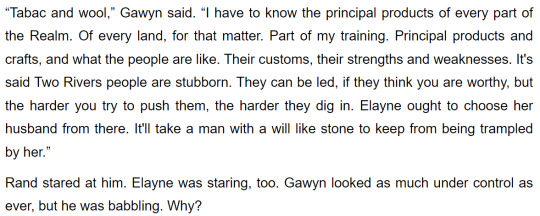
#gawyn 🤝 dain: having obsessive knowledge of two rivers exports for homoerotic reasons#'elayne should have a two rivers husband' sweetheart i think YOU want a two rivers husband#i'm citing this 'elayne should marry someone from the two rivers' bit as evidence to claim He Would Not Fucking Say That damages#against sanderson's whole TOM spiel about how gawyn is jealous that a Lowly Peasant is ruling the world in his stead#anyway gawyn is such a sweetheart in this whole scene i'm in physical pain!!!! i'd forgotten all about it!!!#he's so gentle with rand and teasing with elayne and is also ride-or-die for both of them#he joins elayne in throwing himself between rand and the armed guards!#and he's like 'galad's a good person but goddamn is he annoying' right along with elayne djfkgjh#and now i extra resent AMOL randomly deciding to prioritize the gawyn-galad relationship when it was always gawyn-elayne that mattered most#anyway i'm dying. i didn't really start paying attention to gawyn until LOC so there are some hidden gems in the early books!#gawyn trakand#gawynposting#rand al'thor#randwyn#wot#wot book spoilers
32 notes
·
View notes
Photo


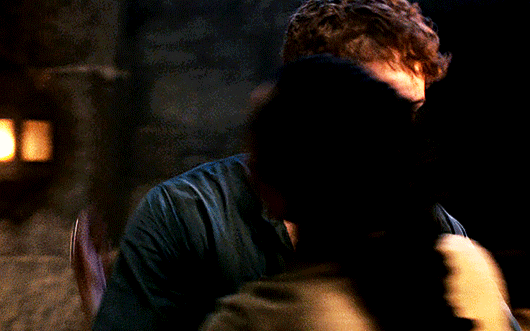

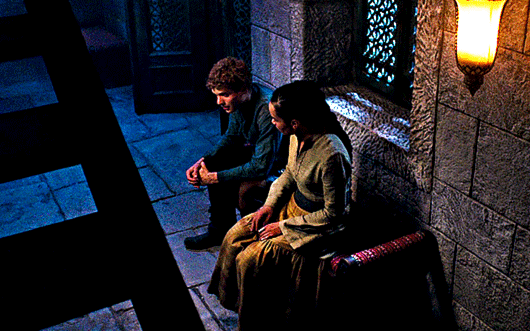
wot gif meme: 4 relationships: 2/4 rand al’thor & nynaeve al’meara
“Don’t let them ruin you, Nynaeve. They’ll try.” “Ruin me?” “Your passion is part of you,” Rand said. “I tried to be like them, though I wouldn’t have admitted it. Cold. Always in control. It nearly destroyed me. That is strength to some, but it is not the only type of strength. Perhaps you could learn to control yourself a little more, but I like you as you are. It makes you genuine. I would not see you become another ‘perfect’ Aes Sedai with a painted mask of a face and no care for the feelings and emotions of others.”
towers of midnight. chapter 15. brandon sanderson
I will pull you down for what you’ve done. For what you’ve done to Mat, and to Perrin. For Rand, the Light help him and the Creator shelter him. Especially for Rand.
the dragon reborn. chapter 8. robert jordan
#the wheel of time#wotedit#wot on prime#twotedit#wot#rand al'thor#nynaeve al'meara#randalthoredit#nynaeveedit#wotmeme#fantasyedit#fantasysource#tvedit#adaptationsdaily#***#i hate the show for not giving them enough scenes#WHATEVER#they deserved more#nynaeve loves her baby dragon so much okkk thanks#also that ToM quote is everything to me
281 notes
·
View notes
Text
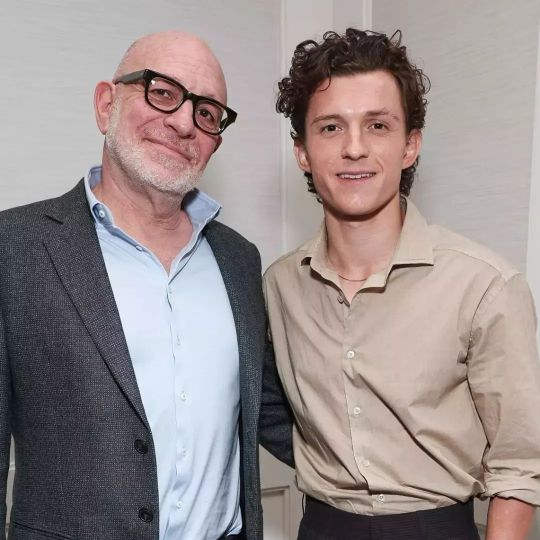
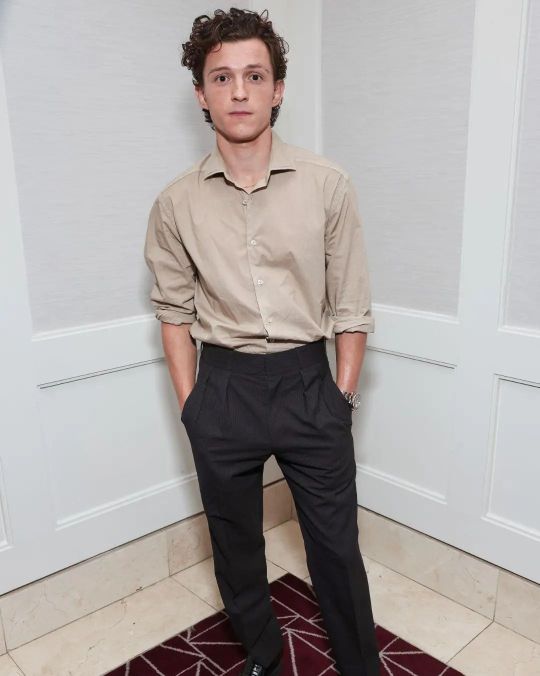

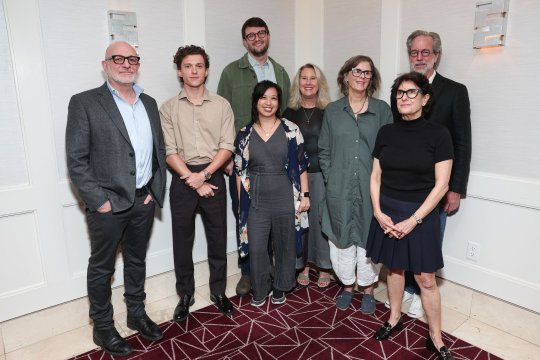






Akiva Goldsman, Tom Holland, Christopher Rand, Leslie Chung, Jodi Domanic, Sue Jacobs, Loren Weeks and Avy Kaufman at Deadline presents Apple TV+'s "The Crowded Room" held at The London West Hollywood at Beverly Hills on November 14, 2023 in West Hollywood, California.
#tom holland#akiva goldsman#sue jacobs#loren weeks#Jodie Domanic#Avy Kaufman#leslie chung#christopher rand#deadline#Apple TV#The Crowded Room Panel
11 notes
·
View notes
Text

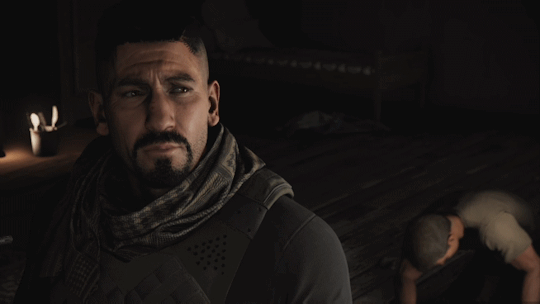


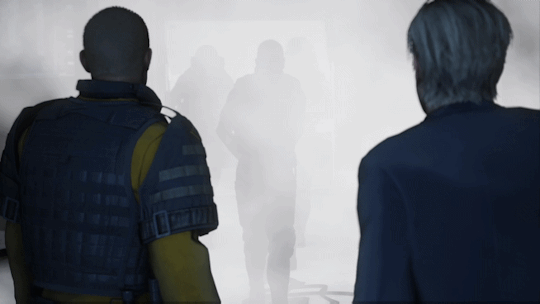



#tom Clancy’s ghost recon Breakpoint#ghost recon breakpoint#tom clancy#libertarian#fascism#jon bernthal#nomad#aurora#ayn rand#ubisoft#gif edit#dailygaming#dailyvideogames#ps4#playstation 4#gaming edit
8 notes
·
View notes
Text
I finished reading Nynaeve's Aes Sedai testing and this chapter is bugging me: for a culmination, it's a clunky conclusion to Nynaeve's arc. Nyn is a pragmatic even when she's prideful: it feels odd that her big moment of warning the Aes Sedai about their connection to the world would come to the surface in a test that's very much made up.
The point of the test is to show she can keep her head under stress, which she did. The AS were dicks about technicalities, as always, but it's in these circumstances that Nyn would point out their isolationism and not in Kin dealing for example?
And there's the matter of why she wants to be Aes Sedai: Nyn doesn't care about that recognition from Aes Sedai, she still would be able to channel without it, and she's doing it to help Egwene's position, but she also explicitly says wants to be Aes Sedai.
Why? Is it because despite all their flaws the AS' initial purpose to serve all is strongly in line with her value of community? Probably, but we don't get that explicitly. We only get this middle ground where she's both invested in and rejecting this group.
I feel like this chapter would not feel like 3 different important Nyn plot points (testing, isolationism condamnation and Lan's bond) jammed into a chapter if the books had deigned giving her an actual arc that's not about helping Rand or Lan after the BA hunt and ter'angreal search.
Both RJ and BS love writing detailed dives into the psychology of the characters except Nyn for the last few books and it's really frustrating. The chapter in itself is quite nice, but it's the crystallisation of my dissatisfaction with Nyn's arc.
The reason why no one but Nyn could have delivered that judgement about AS is that in some ways Nyn is a reflection on the Aes Sedai's inner tensions on a micro and individual level: as a Wisdom, she holds a position of power and knowledge. Yet she fights constantly for respect and appears a bully with too much pride and too little awareness to others. She's fiercely anchored in her beliefs. Once you go on a systemic level with these elements, you get the Aes Sedai. Nyn grows, the Aes Sedai very slowly.
So this character who is all about people and healing, and still says she wants to be Aes Sedai, a rot of a public service, pretty much washes her hands of them and doesn't even work with the Kin, the actual more functional Aes Sedai entity she dreams of?
In the end, it's merely frustration because her character started as the most fascinating but ends up on the back-burner by book 8. Arcs that should have been hers are just featuring her, like the cleansing and the Kin. She has key moments but the connective tissue or word count isn't there, like a tertiary character like Siuan is used. The result is something like this chapter that feels surface level for a main character, especially in comparison with other main.
#Wot book spoilers#Wot book journey#Nynaeve al'Meara#The wheel of time#Towers of Midnight#Remblai#Like a raging sun#Just some Twitter reflections from my ToM reactions that will get cut from the edited notes#Yeah it Nynaeve feels like such a wasted opportunity#She was barely used for books and now the plot is trying to catch up with her and it feels off#On paper I love the idea of her as Rand's mentor/curator and as an anti-Aes Sedai who will jolt them awake#Particularly in concert with Egwene's reforms#But in practice she's underutilized and the narrative leaves you to make big jumps to weave her character development#Which is fine for a character like Siuan or Moiraine!#But Nyn is supposed to be one of the main five!#She should have more than that!
9 notes
·
View notes
Note
⭐️🎭
OMG YES!! (i forgot i reblogged this)
✨ SMASH Asks ✨
⭐️ - Favorite Character(s)?
Julia & Tom: i love them, their dynamic, and how well they balanced each other out (especially in s1). i wish i could’ve seen more stories of them from the past creating different stories.
Ivy: s1 she was definitely problematic but i felt that they at least explained where most of her bad tendencies/intentions came from (mostly how her mom treats her). s2 Ivy just thrived and i was so SO happy to see her finally as Marilyn on Broadway.
Eileen: BAD. B*TCH. i don’t think an explanation is needed, she’s just an icon and i wanted her to get everything she wanted. queen sh*t.
Derek: okay so i just joined this fandom so i don’t know how Derek is perceived just yet but i love his little problematic ass. he’s an awful AWFUL person at times, actually at most times but he’s got something about him where i can’t hate him 🤷♀️
🎭 - Hit list or Bombshell?
Bombshell! i spent most of the 2nd season not quite understanding what ‘Hit List’ was about and as much as i love Jeremy Jordan - his performances didn’t outdo the amazing numbers from Bombshell. even towards the end of s2 i didn’t ever really get goosebumps at any of Hit Lists performances.
21 notes
·
View notes
Text
Hi my name is Mollie and I am obsessed with Tom Pelphrey as Ward Meachum on Iron Fist.
And Charlie Cox as Matt Murdock on Daredevil.
And Theo Rossi as Shades on Luke Cage.
#Netflix#mcu#netflix marvel#iron fist#daredevil#luke cage#ward meachum#danny rand#shades#matt murdock#Theo Rossi#tom pelphrey#Finn jones#Charlie cox#absolute garbage fire sons#my trash boys
10 notes
·
View notes
Text
what enough people don’t realise in the fandom is that the last three books are literally fanfiction. working with harriet and rj’s team just meant that sanderson could minimise in-universe lore errors, that’s all, lol.
#he didn’t even like. try. especially after the 12th book. he made up 90% of the books and this is not an exaggeration.#I still recall the sheer relief I felt when I recognised RJ’s first real extended section of writing in the moiraine rescue sequence in ToM.#the prose in that section made me feel my first real emotion in the last 3 instalments. the 2nd time was rand’s POV in the amol epilogue.#text#brandon
17 notes
·
View notes
Text
perhaps one of my favorite genres of fictional characters is “gay republican”
#this explains my enduring love for metal gear#kaz defo voted for ronald reagan and oce had several ayn rand books#obviously tom#and of course mr edgeworth
9 notes
·
View notes
Text
WoT Meta: The Difference Between Trauma and Adversity
I think one thing that both Jordan and Sanderson don't get enough credit for, Jordan especially, is how viscerally they depict trauma.
There's a trend, especially in fantasy fiction, of trauma being portrayed as a strengthening experience: something that makes the characters that are traumatized inherently stronger or more worthy people, or else reveals some innate inner strength that allows them to power through the experience. It stems from a conflating of trauma with adversity, depicting them as the same thing. A character's abuse, mistreatment, violation, even rape, are all treated as just another obstacle to overcome to prove the hero's worthiness, or else confer worthiness by virtue of their survival. It's a writing convention that has been around forever, but the extreme popularity of Game of Thrones has caused it's use to skyrocket.
Both Jordan and Sanderson defy this line of thinking however, by demonstrating the difference between trauma and adversity, in ways both subtle and overt.
Both Rand and Egwene go through very traumatic experiences at different points: Rand the Box, and Egwene her enslavement by the Seanchan. These experiences don't make either character inherently better or more worthy. They don't even make them stronger. Rather they create problems for both that last more or less the rest of the series.
Rand suffers from extreme claustrophobia, causing him to panic when he feels physically confined (Far Madding, the Seafolk Cabin, even his own rooms when wounded to a limited extent), and he also develops an extreme aversion to ever placing himself in the power of others, in particular women who can channel, causing to frequently go to extreme, often violent lengths to avoid being vulnerable to women who can channel, even ones he in theory is supposed to trust or love. This I think, one of the reasons he stays away so much from Elayne and Avihenda until near the end of the series, but doesn't try nearly as hard to avoid Min, who can't channel.
Egwene meanwhile develops a tendency to lash out wildly when presented with the possibility of being imprisoned again, reacting to mild threats with irrational terror and anger, from the way she attacks the White Cloaks in TGH, to the way she fights back tooth and nail against the Black Ajah to the point where they beat her senseless. Her hatred of the Seanchan is another symptom, even when irrational or dangerous to her cause.
What interesting is that, Rand believes, or tries to convince himself, that his trauma is just adversity to be overcome, that it's a 'forging' experience, that he went through in order to make him strong enough to do his duty as the Dragon. He echoes many sentiments from Lan and the Borderlanders in this fashion, like any victim of abuse, trying to find rhyme and reason for why he was hurt, and in so doing preventing himself from healing or confronting his pain. This leaves him vulnerable and also stuck in the same cycle of being hurt, lashing out, and convincing himself that the problem was just that he has not yet made himself 'strong' enough that trauma will simply not hurt him any longer. It's no mistake that this vicious cycle culminated in Rand nearly destroying himself, and the world. One of the key parts of Rand's development in the last few books of the series is being able to differentiate between his trauma and adversity, to stop trying to just repress his feelings in an effort to 'power through' and instead accept the pain and suffering he's endured and try and work through it.
Similarly the scars of Egwene's captivity are felt all the way through to the end of the series: even in AMOL it's effects are still showing up, tanking her meeting with Tuon, briefly allowing Messana to take her captive, and causing her to act irrationally in regards to Leliwin. The difference is that Egwene is far better at dealing with with her trauma in part because she experiences true adversity and growth during her time with the Aiel, and learns to tell the difference between the two.
The Wise Ones are harsh with her, but not unfair, they have extremely high expectations but they are not cruel or malicious when she fails to meet those expectations: her punishments are never useless or for their own sake, their is always a lesson or a benefit to them, from having to braid her hair like a child when she is caught acting like a child, to having to run laps in order to both punish her lateness and strength her constitution, to even having to dig holes so that she'll understand the futility of meddling with Sevanna. But most importantly, Egwene from the beginning is made aware that she can, at any time, walk away. That's one of the points of her and Amys's confrontation in TSR: Egwene is with the Wise Ones by choice, and at any time she could leave if she truly wanted too. It is a challenge she must overcome, not something being inflicted on her without her consent. Her meeting of her toh for lying to the Wise One's at the end is the culmination of this arc. At that point she has nothing to gain from the Wise Ones, yet she chooses to be held responsible for her actions anyways, to be accountable and to make right what she had done wrong. That's the difference between the beatings inflicted on her by Renna, and the beating used to help her meet her toh. One she has a chooses as part of accepting responsibility, the other she has forced on her in order to compel her obedience.
This fine distinction is one of the really great thing about WoT, and what to me at least, puts it on a whole other level from Game of Thrones. It shows a better understanding of people and trauma, of what makes people grow and what leaves them scarred, without devolving into cynical 'everything is suffering' nihilism. It neither substitutes trauma for growth, nor presents trauma as a inescapable state in which you will be forever trapped. Instead it presents it as something you can heal from, but only with time, effort, help and being honest about your feelings.
It also dovetails nicely with the ideological conflict at the heart of the series, but more on that in a bit.
#WoT#Wheel of time#WoT Meta#Wheel of Time Meta#WoT Book Spoilers#TOM Spoilers#Egwene al'vere#Rand al'thor
218 notes
·
View notes
Text
i hope that whoever wrote this article on the WOT wiki is coping okay with their favorite character being cut from the show

#i just wanted to see if it was mentioned again after rand had it in cairhien before dumai's wells#and instead i got this impassioned essay. not mad about it!#the article goes on to say that this flute also served a crucial purpose in moiraine's rescue heist#but i don't buy that that's the same flute bc nobody in that party met up with anyone in rand's party between LOC and TOM#and thus no flute handoff could've taken place#does rand still have his flute!!!! these are the only kinds of WOT lore questions that keep me up at night#wot#the wheel of time#wot book spoilers
151 notes
·
View notes
Text
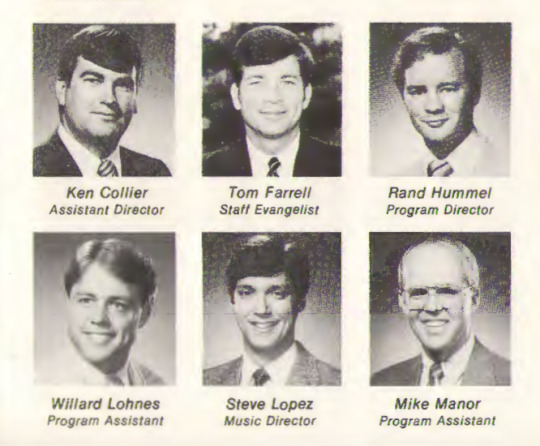
Here are the men who will cement the decisions for every Senior's "teachable moments" at the WILDS:
Ken Collier
Tom Farrell
Rand Hummel
Willard Lohnes
Steve Lopez
Mike Manor
#Bob Jones University#The WILDS#1985#Senior Trips#Ken Collier#Tom Farrell#Rand Hummel#Willard Lohnes#Steve Lopez#Mike Manor
0 notes
Text
The Crowded Room’s actor/EP Tom Holland, writer/creator/EP Akiva Goldsman, script supervisor Jodi Dominic, production designer Loren Weeks, editor Christopher Rand, VFX supervisor Leslie Chung, casting director Avy Kaufman and music supervisor Sue Jacobs enter for the panel
#tom holland#akiva goldsman#the crowded room#Deadline#Apple TV#FYC#for your consideration#Jodi Dominic#Loren Weeks#Christopher Rand#Avy Kaufman#Sue Jacobs
7 notes
·
View notes
Text

Bad movie I have Surf Nazis must Die 1987
#Surf Nazis must Die#Gail Neely#Robert Harden#Barry Brenner#Dawn Wildsmith#Michael Sonye#Joel Hile#Ryan Fegley#Gene Mitchell#Tom Shell#Bobbie Bresee#Jordan Briers#Tom Demenkoff#John Williamette#Rand Hogen#Dennis Phun#Steve Reid#Terry Lee#Brian Krutoff#Ted Prior#Andrew Bick#Dawne Ellison#Bertha Dahl#Willa Reynolds#Eva Goodrich#Esther Lloyd#Tom Searle#Karan Hanson#Christina Garcia#Bernadette DiSanto
0 notes